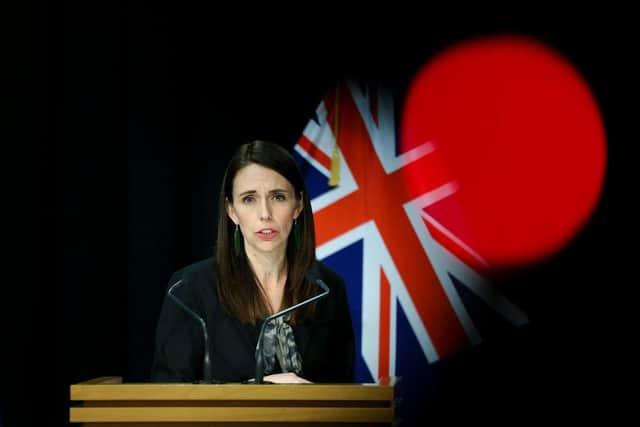New Zealand coronavirus: how country got new Covid-19 cases after 102 days of none - and latest lockdown restrictions in Auckland
New Zealand’s largest city has been forced back into lockdown after new coronavirus cases were recorded.
The new infections marked the end of a 102-day period without a single case being reported.
How did new cases emerge?


Advertisement
Hide AdAdvertisement
Hide AdThe new cases are thought to have emerged from local transmission, with four people within one family in south Auckland testing positive for the virus.
In the last three months, the only cases of coronavirus have been among residents returning from abroad, who were then quarantined upon returning to the country. However, none of the four family members in Auckland have travelled recently.
New Zealand has now reported a total of 123 new coronavirus cases, with the largest cluster based in Auckland.
An initial three-day lockdown was quickly imposed in Auckland after the first four cases were confirmed, with restrictions taking effect on 12 August. Authorities have since been tracing contacts of the family in an effort to prevent any further spread.
What restrictions have been imposed?
New Zealand’s Prime Minister Jacinda Ardern initially imposed Level 3 measures in Auckland, meaning residents in the city have been asked to stay at home and some non-essential businesses, such as bars and pubs, were closed.
Ms Ardern also said that travelling into Auckland is banned unless people live there and are travelling home.
The rest of the country has been placed under Level 2 restrictions, which has seen mass gatherings limited to no more than 100 attendees with social-distancing, and people asked to stay at home as much as possible.
The restrictions were initially only meant to be in place for three days, but a 12 day extension was later imposed on 14 August after the cluster of cases grew.
Advertisement
Hide AdAdvertisement
Hide AdMs Ardern has now further extended Auckland’s lockdown by four days. Level 3 restrictions were meant to be eased at midnight on Wendesday (26 August), but have now been pushed back until the same time on Sunday (30 August).
From next week the city will be placed under Level 2 restrictions, along with the rest of the nation, meaning cafes and restaurants can reopen but a limit on gatherings still remains.
The alert level will be reviewed on 6 September and may be dropped to Level 1 if it is safe to do so, allowing all restrictions to be eased except for international travel.
How did New Zealand control the virus so well?
New Zealand has been praised internationally for its handling of the pandemic, with the country imposing an early lockdown, strict border restrictions, effective health messaging and a successful test and trace programme, which all contributed to eliminating the virus.
There have only been just over 1,570 confirmed cases in the country since the pandemic broke out in the country in late February, and just 22 deaths have been recorded.
The World Health Organization (WHO) had hailed New Zealand as an example to others for having "successfully eliminated community transmission".
Up until Tuesday (11 August), New Zealand had managed 102 days without a single locally transmitted case of coronavirus, but the country has now warned against complacency.
Announcing the lockdown at a press conference, Ms Ardern said: “This is something we have prepared for.
Advertisement
Hide AdAdvertisement
Hide Ad“We have had 102 days and it was easy to feel New Zealand was out of the woods.
“No country has gone as far as we did without having a resurgence. And because we were the only ones, we had to plan. And we have planned.”
